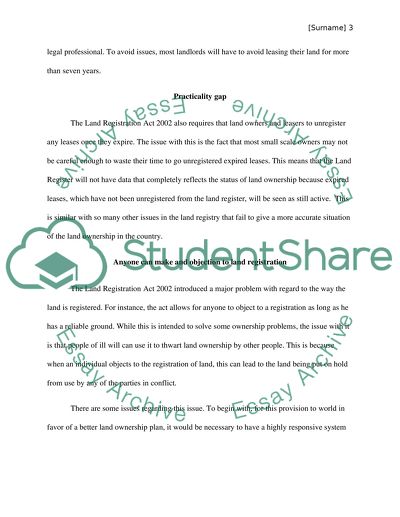Cite this document
(“Land Law Essay Example | Topics and Well Written Essays - 2000 words - 3”, n.d.)
Land Law Essay Example | Topics and Well Written Essays - 2000 words - 3. Retrieved from https://studentshare.org/law/1638311-land-law
Land Law Essay Example | Topics and Well Written Essays - 2000 words - 3. Retrieved from https://studentshare.org/law/1638311-land-law
(Land Law Essay Example | Topics and Well Written Essays - 2000 Words - 3)
Land Law Essay Example | Topics and Well Written Essays - 2000 Words - 3. https://studentshare.org/law/1638311-land-law.
Land Law Essay Example | Topics and Well Written Essays - 2000 Words - 3. https://studentshare.org/law/1638311-land-law.
“Land Law Essay Example | Topics and Well Written Essays - 2000 Words - 3”, n.d. https://studentshare.org/law/1638311-land-law.


